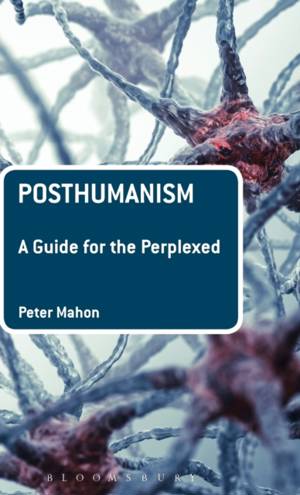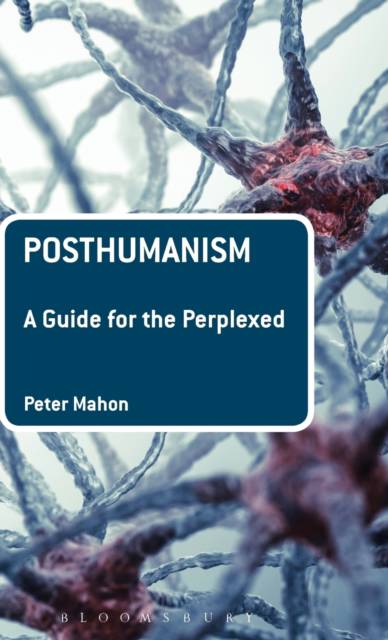
- Retrait gratuit dans votre magasin Club
- 7.000.000 titres dans notre catalogue
- Payer en toute sécurité
- Toujours un magasin près de chez vous
- Retrait gratuit dans votre magasin Club
- 7.000.0000 titres dans notre catalogue
- Payer en toute sécurité
- Toujours un magasin près de chez vous
271,45 €
+ 542 points
Format
Description
In Posthumanism: A Guide for the Perplexed, Peter Mahon gives his readers an overview of posthumanism, examining the intoxicating-and often troubling-entanglements of humans, animals and technology in science, society and culture that constitute its field. Mahon not only explores the key scientific advances in information technology and genetics have made us and society posthuman, but also how certain strands in art (such as science fiction and video games) and philosophy (for example, in the work of Andy Clarke and Jacques Derrida) have played-and continue to play-a crucial role in shaping how we understand those advances. Central to Mahon's analysis of posthumanism is an understanding of technology as a pharmakon-an ancient Greek word for a substance that is both a poison and a cure. In the light of this analysis, Mahon considers our posthuman future, as envisioned by a range of futurists, from Ray Kurzweil to those at the Machine Intelligence Research Institute. What seems clear is that this future will require massive shifts in how we think about ourselves as techno-biological entities, about the benefits and threats of intelligent technologies and about the roles consumerism and universal basic income will play in societies. Posthumanism is our present, our future and a challenge to which we must rise.
The book provides a concise and coherent overview of Posthumanism, introducing all the key concepts and themes, and is ideal for undergraduates who require more than just a simple introduction to Posthumanist thought.
The book provides a concise and coherent overview of Posthumanism, introducing all the key concepts and themes, and is ideal for undergraduates who require more than just a simple introduction to Posthumanist thought.
Spécifications
Parties prenantes
- Auteur(s) :
- Editeur:
Contenu
- Nombre de pages :
- 352
- Langue:
- Anglais
- Collection :
Caractéristiques
- EAN:
- 9781474236799
- Date de parution :
- 23-02-17
- Format:
- Livre relié
- Format numérique:
- Genaaid
- Dimensions :
- 140 mm x 216 mm
- Poids :
- 566 g

Les avis
Nous publions uniquement les avis qui respectent les conditions requises. Consultez nos conditions pour les avis.






